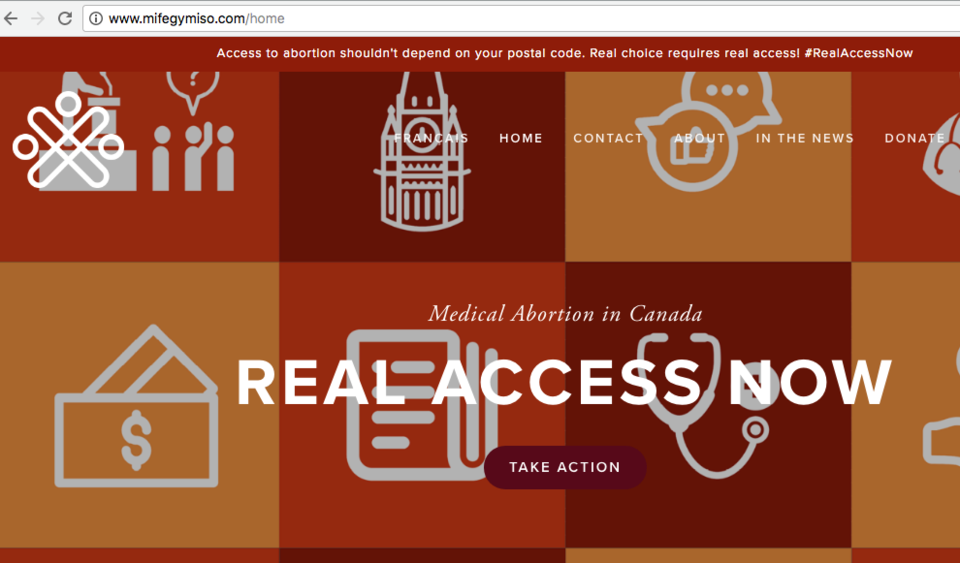Prince George health providers say the provincial government's plan to provide free universal coverage of a medical abortion will improve access to reproductive health services in remote areas of northern B.C.
The B.C. Ministry of Health announced on Tuesday that, as of January 15, Mifegymiso will be covered under MSP at no cost. The drug is an alternative to surgical abortion and has been listed by the World Health Organization as "essential medicine." Mifegymiso has been covered by PharmaCare since July 11, 2017, but the out-of-pocket cost for individuals without PharmaCare is currently approximately $300. The drug can be prescribed by a doctor prior to nine weeks into the pregnancy, but patients must first undergo an ultrasound to ensure that the pregnancy is not ectopic, meaning outside the uterus.
Women's health advocates have applauded the decision by the B.C. Ministry of Health, which they say offers access to the "gold standard" for safe medical termination of pregnancies. The province will now join Alberta, Ontario, Quebec, New Brunswick and Nova Scotia in offering universal access to Mifegymiso.
According to Heather Smith, a family doctor who specializes in women's reproductive health, reducing the cost of the drug will require fewer trips to Prince George or Vancouver for patients and will improve access to health services for women in rural communities in the north.
"If you live in Fort St James, you could go to Vanderhoof and get the ultrasound done," Smith said.
"I could do a telephone consult and have the patient pick up the medication at the pharmacy close to them rather than having to travel to Prince George."
Since the drug was approved by Health Canada in 2015, restrictions on its use have slowly been vanishing. Prior to November of 2017, Health Canada required that Mifegymiso be taken in the presence of a doctor, and that it be administered no later than seven weeks into the pregnancy.
Smith said that Health Canada regulations were changed on November 7 to allow pharmacists to sell the medication to individuals with a prescription and moved the required gestational period from seven weeks to nine. She believes this decision also played a significant role in improving access to reproductive health services.
"By the time they get to the doctor, get an ultrasound, they're at six weeks or six and a half weeks, maybe. If they're lucky," Smith said.
"With the cut-off being nine weeks now, it's a little bit easier to get an ultrasound."
According to Tessa Hamilton, a registered nurse at the UNBC Wellness Centre, there are few barriers to access to abortion services for her clients in Prince George. Ultrasounds are typically easy for clients to access.
"They're pretty quick, it's normally within a few days. We really want those dates really quickly because that determines what type of abortion you can have, whether that's medical, or surgical," Hamilton said.
Although Hamilton said that she has seen few signs of social stigma around the issue of abortion, she said that there are currently only two doctors who perform surgical abortions in Prince George.
The Prince George Citizen attempted to contact other sexual health clinics in the region. Individuals from two were unwilling to go on the record to discuss abortion services in the region.
All Northern Health sites currently have Mifegymiso in stock, according to a statement by the health authority. A statement from the B.C. Ministry of Health said the drug would be stocked in rural and remote pharmacies where surgical abortion is currently limited, as well as in pharmacies that have been identified as a priority by B.C. Children's or Women's hospitals. Other commercial pharmacies will be able to order Mifegymiso as needed.
However, according to an internal listing compiled by the College of Physicians, the Shopper's Drug Mart at Spruceland is the only commercial pharmacy in the entire Northern Health region that currently stocks Mifegymiso.



